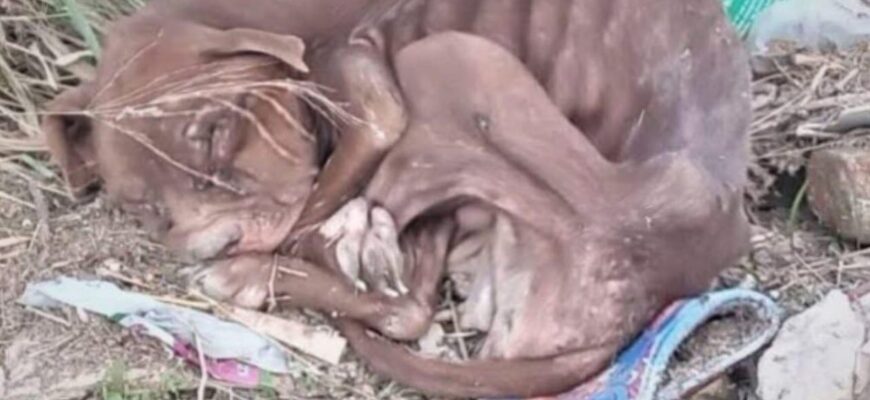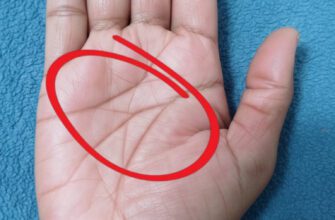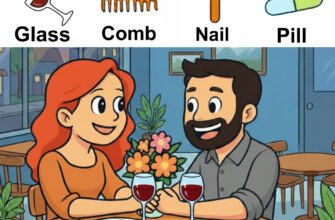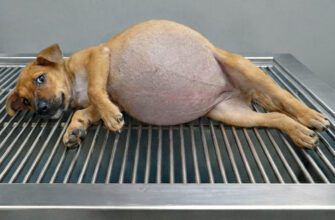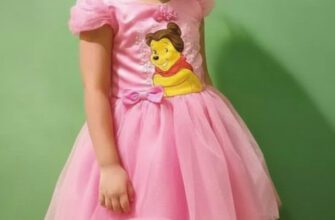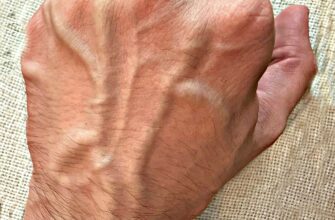That wasteland behind the industrial zone always seemed to me like a place where the city forgets to breathe. There, grass grows out of rust, the wind carries candy wrappers, and the rubble remembers the steps of people who have no time to look back. I arrived there in the morning — not on business, but “just in case”: the shelter was running out of old mats for bedding, and discarded rags were always found in the ruins of the former market. The sun was dim, like a coin that someone had held in their fist for too long; the air smelled of damp earth and someone’s unspoken “help.”
First, I saw a rug — shabby, childish, with faded letters, grown into the ground. And then I noticed what I took for a crumpled brown bag nearby. It “breathed” irregularly, like an old accordion. I stopped. Under the reeds lay not «something», but «someone»: a thin, almost transparent dog, curled up into a comma. The ribs were so clearly visible, as if someone had drawn them with a sharp pencil right under the skin. Dust had dried on the muzzle, thorns on the ears; the eyes were closed, but the corners of the eyelids trembled slightly.
«Sleeping?» — the first, cowardly thought. «Leaving» — the second, honest one.
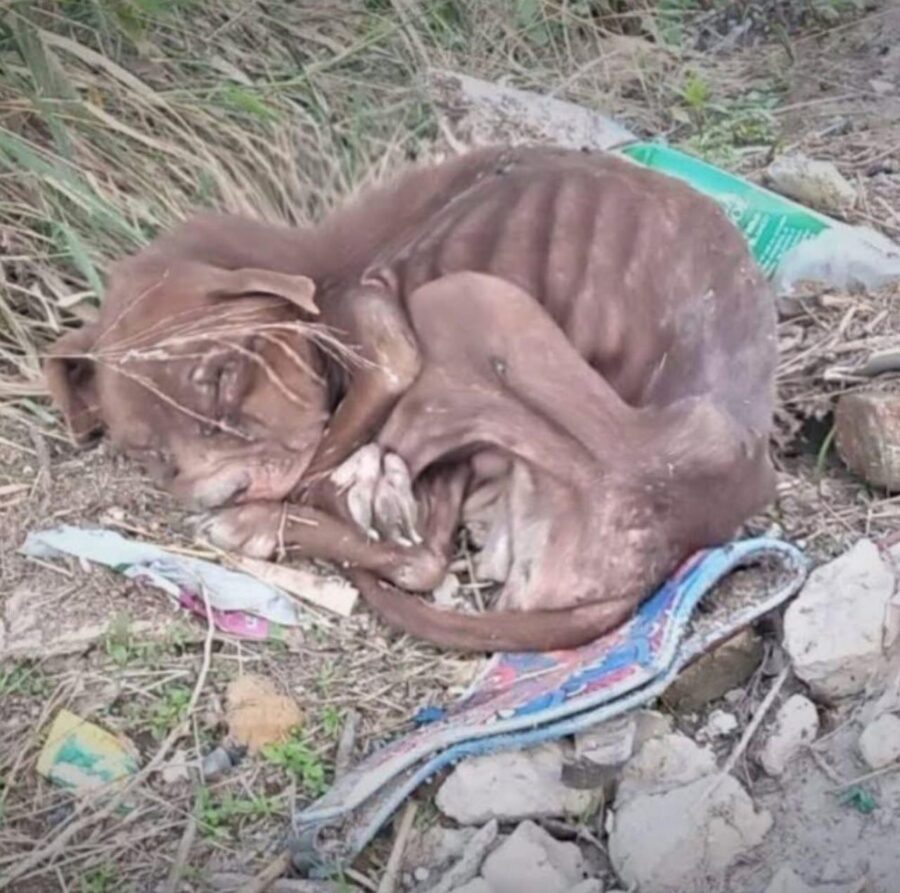
«Hey,» I said in a half-whisper, although there was no one around. «Can you hear?»
He did not move. Only from the depths of his dry throat escaped a tiny sound — not a groan, but a weak «is anyone here?» I sat down, pulled off my glove and brought my palm to my side. Warm. Barely, like the heat of the last coal.
The phone slipped out of my pocket by itself.
— Nadya, are you at the base? — I whisper.
— Asya, yes. What do you have?
— A vacant lot near the silos. Very thin. The last one.
— Don’t touch too much. Water, drop by drop. I’ll take glucose, a blanket, a hot-water bottle. Ten minutes.
I put my backpack on the ground, unfastened the flask and, as I was taught, wet my finger: drop by drop on my tongue, so that he wouldn’t choke. He barely reacted, but once he suddenly obediently ran his tongue, as if remembering a forgotten gesture from another life. I spoke to him quietly, calmly, as if I was explaining rain to a child:
«Look, this is water. You don’t have to be afraid of it. It won’t drag you away — it stays in your mouth and makes it cool inside. We’re in no hurry. We’re here. I’m here.»
The wind rustled the grass. Somewhere the security gate clanked dully. The movers were arguing nearby, but their voices were like the radio in the next apartment — real, but not about us. I noticed the scars on his paws — not angry, working ones. Someone once knew his name. This thought burned.
Nadya drove up — quickly, without theatrics.
— Condition? — a nod at the dog.
— Keeps warm. Minimal reaction. Swallows drops.
— Good for you, that you didn’t pour in a stream. We follow the protocol: a little glucose, a blanket, then to the clinic.
We worked silently, like people who had already done this and knew the value of minutes. He didn’t resist — he was just light, too light, like an empty linen sack… I myself cut off the thought: not about sacks today, enough. Nadya covered him with a blanket, I put my palm under his head, and he opened his eyes for the first time. Light, with a yellowish sparkle. There were no demands in those eyes, only a question: «Are you staying for long?»
«For a long time,» I answered out loud. He seemed to believe me.
The road to the clinic passed outside of time. Every hole was someone else’s, every stop was personal. Nadya held the IV, I sat behind him and talked to him until my lips were dry. «Dude, can you hear me? It’s going to be loud and white now, don’t be scared. There are people there who know how to bring back. We called in advance, they’re waiting for you. Breathe, please. Like this. More.» Sometimes he closed his eyes, sometimes he raised them slightly, as if he were fixing my face on an internal film — just in case.
At the clinic, we were met by Dr. Yegor — one of those who speaks quietly, but in such a way that you want to listen. He glanced at the dog, at our hands, at the blanket and nodded:
«Put him on the table. No harsh words. Asya, you with him, Nadya — the solution. The first analysis is hematocrit and glucose. I’ll eat later. We don’t joke about refeeding.
I never liked medical words, they make noise in my head like glass marbles. But next to Yegor, they turned into bridges: one step — and you’re already on the safe side. He inserted a catheter, gave a couple of quick injections, put his ear to my chest and said briefly: «The heart beats stubbornly. I like stubbornness.» Then he turned to us: «Do you have a name?»
We looked at each other. There was no name. But it appeared on its own, from the rustling of the grass, from the way he lay in the reeds, pressing his paws tightly to himself:
«Reeds,» I said.
«Reeds,» Nadya repeated, and it was as if warm air entered the word. «Hold on, baby.
The room was filled with activities: the IV dripped rare drops, the clock ticked, supporting our backs, Yegor wrote down the readings, the nurse brought a hot water bottle. Kamysh stopped shaking. He did not fight — he surrendered not to death, but to our hands, like a frozen bird would surrender to a warm palm. It was the most terrible and most honest trust I have ever seen.
— The wound on the thigh is old, — Yegor carefully parted the fur with a cotton swab. — There was inflammation, it broke through, healed crookedly. But it is not critical, it will heal. There are parasites, we will treat it according to plan, it is too early now. Eyes… yes, dryness. It will do. There is a chance.
— How much? — Nadya asked, without raising her head.
— As much as we give. And as much as he takes.
I was on duty at night. The clinic, empty, began to resemble a library: on the shelves instead of books — packs of bandages, instead of readers — quiet breathing. The reeds lay on a blanket, and I raised his head every forty minutes to give him a sip — first water, then broth. He was learning to live again by the alphabet: «a» — inhale, «b» — sip, «c» — sleep again. Sometimes he opened his eyes and looked for me. «I’m here,» I answered. «Here» — turned out to be the most important word of that night.
On the third day, he quietly stretched — just a little, like a blade of grass trembling in the rain. On the fourth, he tried to put his head on the other side, and he succeeded. On the fifth, he raised his muzzle and looked around the room: his gaze was still floating, but there was already something of the kind that makes people buy tickets for dawn trains.
“See?” said Nadya, “he’s become interested.”
“A small one,” I responded.
“Little interests add up to a big ‘I want to live.’”
We moved him to a quiet room. Yegor allowed slightly damp food, soaked to the state of “remembered mom.” Kamysh ate carefully, as if he was apologizing to the food for his absence all these days. Each sip was like a step: carefully — steadily — more. When the bowl was empty, he looked at me in surprise, as if asking: “And all this is for me?” I nodded and, as if to a child, promised: “It will be again tomorrow.”
There was a free box in the shelter — with a window onto the yard, where lilacs grew and lazy cats slept in the sun. We dragged a blanket there, hung a light curtain to keep out the draft. Kamysh took the first three steps — his legs walked so reluctantly, as if they had long ago forgotten how to be legs and not sticks. He stopped and caught his breath.
— I’m nearby, — I said.
He took another step. And another.
In the evening, the watchman from the vacant lot came — the mustachioed Afanasy, the same one who clanked the gate when I found him. He was holding a bag of milk and a bun in his hands.
— I saw him then too, — he admitted awkwardly, — but I didn’t think he was alive. I thought he was trash. My conscience was gnawing at me. Here… milk.
— Thank you, — I said. — He’s alive. And he’ll be even more alive.
Afanasy stood there, blowing his nose into his sleeve, and added in an almost childish voice:
— A good name — Kamysh. He was lying there, in the reeds. He will become strong — he will rustle his tail.
The days went in a circle, but this circle was not closed, but a spiral — each turn raised us higher. Kamysh stopped shuddering from the rustle of bags — we rustled near him on purpose and gave him treats to reprogram his memory. He washed himself after eating, comically sticking out his tongue, and bit the air when his cheeks were scratched. His ears became more alive, his skin — smooth, his eyes — wet from life, and not from pain. One day he heard Lena’s laughter and listened as if this sound had been written into his instructions at birth.
“Look,” Yegor was surprised, “his tail started working.”
And indeed: he trembled timidly — once, twice — and walked quietly, like grass in the wind.
“That’s a ‘yes,’” I said.
“That’s a ‘yes,’” Kamysh confirmed with a look.
We are often asked: «How do you cope?» Every time I look for an honest answer and find it where it lies — in the little «yes». In the way a dog, in whom no one believed, takes a step towards a bowl. In the way a stranger brings milk simply because his conscience won’t let him go. In the way the wind stops being an enemy. This is not heroism. This is a craft — slow, painstaking, but rewarding. Like mending an old blanket: if you don’t look closely, the seams are almost invisible, but it becomes warmer.
On the second week, a woman in a green jacket came to us. Her name was Vera. She didn’t say much, at first she just stood by the door, holding onto the strap of her bag, and looked at Kamysh the way you look at a childhood photograph.
— Can I? — she nodded towards the rug.
— Of course, — I answered. — Just slowly. He gets scared of sharp ones.
Vera sat down on the edge of the blanket. Kamysh didn’t flinch. He looked at her as if she were a new sound and quietly inhaled. Vera didn’t stretch out her hand — she put her palm next to him, open up, giving him the right to choose. Kamysh leaned down, sniffed, then carefully touched him with his nose. Vera couldn’t stand it — water rose to her eyes.
— I… — she swallowed. — Our old man passed away recently. Fifteen years old. I thought he wasn’t ready yet. But apparently he is.
We didn’t rush things. Vera came every day: she sat and read him short notes from her pocket — «weather for tomorrow», «pie recipe», anything, as long as the voice was nearby. Kamysh listened attentively, as if he was learning to build a world from words all over again. Sometimes he fell asleep, resting his head on her lap. She laughed quietly, touched his ear, and from this laughter it became light inside me, like in the morning kitchen, where the kettle is boiling.
“Do you think,” she asked one day, “will he be able to trust the street again?”
“He will,” I said. “If the street is with you. If you will be his street.”
Spring imperceptibly turned into summer. The lilacs outside the window faded, the cats sprawled in the shade, the sun learned to find a crack in the curtain to put a warm spot on Reed’s face.
He was already going out into the common yard — still on a short harness, delicately avoiding puddles, as if the puddles remembered something unpleasant. He was drawn to smells: grass, bread, other people’s dogs. Sometimes an old shadow covered him — he tucked his tail, shrank into a comma. Then we just stood next to each other and breathed together. About thirty seconds. A minute. Two. The shadow retreated.
«Look,» said Nadya, «his muscles are ‘drawn’.»
«He’ll be handsome,» smiled Yegor. «A thoroughbred… I mean, with a breed — ‘stubbornness plus tenderness.’
«The best breed,» I agreed.
A little more time passed, and the day came that we were waiting for and dreading at the same time. Vera brought a new collar — warm, leather, with a small embossing in the form of a twig. The tag said: «Reed.» Vera stood in the doorway and said quietly:
— I’m ready. If you are, too.
We don’t make a big deal about it on days like this. We just gather «his» blanket, «his» bowl, put «his» medicine in a bag and read the instructions almost in a whisper. Vera listened very attentively, nodded, and then suddenly looked at me and asked:
— Can I tell him something too?
She sat down on the floor and whispered in Kamysh’s ear:
— «I’m here for a long time.»
He licked her wrist. We all understood: it was said correctly.
They left slowly, but confidently. I watched them from the window — how the blanket crawled into the new car, how the trunk carefully opened, how Kamysh looked back, saw me and… was not afraid. He simply put his paw on the threshold and jumped in. It was not «goodbye», but «see you later», the right word when the story continues, and does not end.
In the evening I returned to that wasteland. I just wanted to check how the place where it all began was breathing. The grass rustled exactly the same, the stones were in their places, the rug with letters seemed to have become a little lighter. I stood, listened to the wind and suddenly clearly heard inside that very fragile «is anyone here?», with which our «for a long time» began. And I answered — without phones, without medical terms, without witnesses: «Yes. We are here. We will be here as long as necessary.»
Sometimes it seems to me that the world is held together by very simple things. By a blanket in which you can wrap your fear. By an IV drip, beating evenly, like a metronome of hope. By milk, which a confused guard brings. By doctors who have quiet voices and firm hands. On the fact that people, tired of other people’s troubles, still get into their cars and go to where someone curled up into a comma. And also on names. When you call someone by name, even if this name grew out of the reeds, life stops being homeless.
Kamysh now lives in a house that smells of bread and morning newspapers. Vera sends photos: by the window — a bed, on the bed — a brown dog with intelligent eyes; on the neck — the same collar with a twig; on the carpet — the same «alphabet» of life, only now up to the letter «m»: «softness», «peace», «we». Sometimes it seems to me that when he falls asleep, he hears not the wind of the wasteland, but the whisper with which it all began: «I am here.» And this «here» is now always nearby.
To be honest, I still don’t know how to tell such stories correctly. To be afraid of being too cruel is to trivialize pain; to smooth over edges is to betray the truth. But I know this: that day, when I saw a brown comma in the rubble, the world could have pretended that “nothing happened.” It didn’t. It made me stop. And that “stop” was the beginning, with which one dog returned from the edge to the center. From “nobody” to “Reed.” From silence to the rustle of a tail against a wall, the happiest sound in the world.
➕
